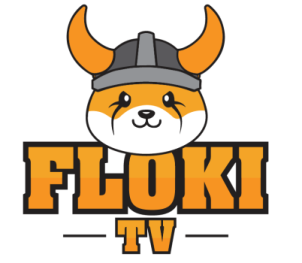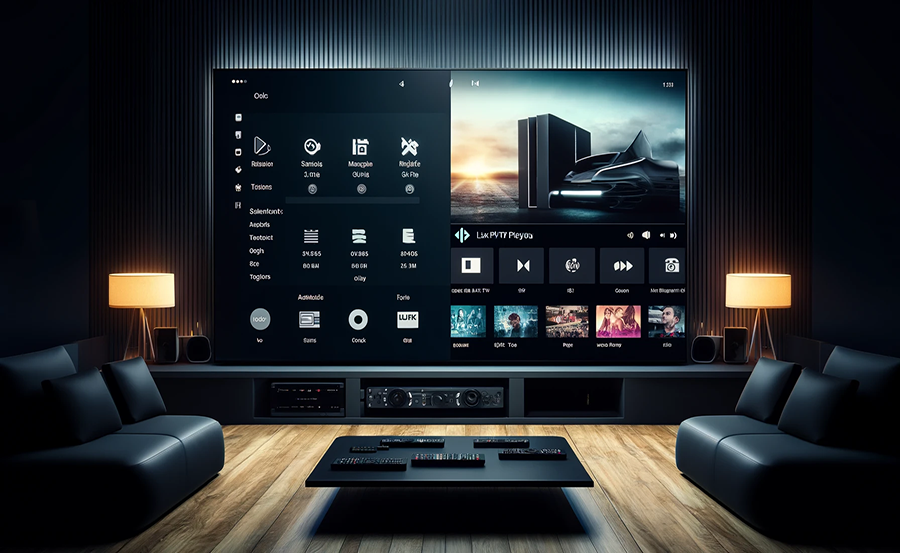In the rapidly evolving world of digital media, the right software choices can dramatically shift your viewing experience from ordinary to extraordinary. For Linux users, this is particularly crucial given the uniquely versatile nature of their operating system. Among the most popular options for media playback and streaming are VLC and Kodi, but choosing between them can be a formidable task without a clear understanding of their strengths. Furthermore, with the vibrant world of IPTV streaming services burgeoning, Floki IPTV emerges as a formidable player, offering what many argue is the best IPTV subscription available today. Let’s unravel the details to help you choose wisely for your needs.
Understanding VLC: A Stalwart in Media Playback
VLC, a free and open-source media player developed by the VideoLAN project, is renowned for its remarkable simplicity and robust capabilities. Its popularity stems from its ability to handle virtually any type of media file or streaming protocol, making it a staple on millions of computers worldwide. It’s particularly beloved in the Linux community where flexibility and open-source ethos align perfectly.
Functionality remains VLC’s strongest suit. Users appreciate its no-frills interface, which focuses squarely on content rather than distractions. For those who value direct media playback without unnecessary bells and whistles, VLC is a strong contender. It supports a wide variety of audio and video compression methods and file formats, including streaming protocols, DVD-Videos, video CDs, and various streaming protocols.
Pro Tip:
Enjoy a year of premium content with a 1 Year IPTV Subscription from Best IPTV Provider, covering everything from entertainment to sports.
The Technical Edge of VLC
One of VLC’s principal advantages is its broad compatibility with different file formats. Be it simple .mp3 files or complex .mkv videos, VLC plays them all without needing additional codec installations. This feature alone makes VLC a go-to for users seeking hassle-free media playback on their Linux machine.
Moreover, VLC offers various advanced features like customizable skins, integration with streaming protocols, and the ability to convert media files, making it not just a player but a comprehensive multimedia toolkit.
Where VLC Fits in IPTV Streaming
On the IPTV front, VLC can function as a basic player for IPTV streams, but its interface and feature set are somewhat limited for this purpose. While it’s perfect for quick setups or as a secondary player, those looking to create a richer, more visually engaging IPTV experience might find it lacking.
It can still be useful for basic channel streaming but doesn’t offer the more intricate support for EPGs (Electronic Program Guides) that some users might desire in a full-fledged IPTV application.
Diving into Kodi: The Ultimate Media Center Solution
Kodi is a powerhouse when it comes to media management and consumption. Unlike VLC, which primarily serves as a media player, Kodi is a fully-fledged media center application. Developed by the non-profit XBMC Foundation, Kodi has become synonymous with a highly customizable and versatile media experience.
For Linux users, Kodi provides a striking counterpoint to VLC with its expansive capabilities. From playing local and networked media to viewing remote streams—the possibilities are extensive. It’s not just about watching content but about consuming it in a manner that’s entirely tailored to you.
Customization and Add-ons with Kodi
Kodi’s strength lies in its adaptability. Through the use of plugins called “add-ons,” users can expand functionality extensively. This means you can do more than just watch movies or TV shows; you can curate an entire media ecosystem with third-party applications offering a range of functionalities—from controlling lights to integrating with smart home systems.
In terms of aesthetics, Kodi offers a variety of themes that let users transform its appearance to match their personal preferences, ensuring that the user interface is as pleasing as the content viewed on it.
Kodi’s Multitasking in IPTV
When it comes to IPTV, Kodi’s capabilities shine brightly. It allows users to not only watch TV channels over the internet but also access advanced features like EPGs and PVRs (Personal Video Recordings). Whether you want to pause live TV or schedule recordings automatically, Kodi accommodates such demands with aplomb.
However, this versatility requires a degree of tech-savviness to fully exploit. New users might find Kodi somewhat intimidating compared to VLC, which benefits from its simplistic nature.
The Floki IPTV Advantage: Reimagining IPTV Streaming
In the midst of this VLC vs. Kodi debate, Floki IPTV stands out as the best IPTV subscription available globally. Offering a myriad of channels and a seamless streaming experience, FlokiTV blends the accessibility of VLC with the expansive potential of Kodi, effectively bridging the gap between these two powerhouse applications.
Floki IPTV brings together an impressive lineup of features, and its compatibility with both VLC and Kodi makes it an ideal choice for any Linux IPTV setup. Users enjoy a substantial selection of local and international channels, available without the usual hassles of buffering or complicated setups.
What Sets Floki IPTV Apart?
Floki IPTV is designed for those who demand quality, variety, and reliability in their IPTV experience. Its service is built on cutting-edge technology that ensures a smooth streaming experience with minimal interruptions, and this is a pivotal reason it’s considered the best IPTV subscription by many enthusiasts.
Furthermore, FlokiTV is remarkably user-friendly, providing easy subscription management, quick access to content, and customer service that truly caters to user needs—capitalizing on gaps left by larger, less personable competitors.
Compatibility and Integration
Floki IPTV’s compatibility with a range of devices and software—including both VLC and Kodi—makes it incredibly versatile. Whether one prefers the streamlined simplicity of VLC or the customized environment that Kodi offers, Floki IPTV integrates smoothly into either, promising a top-tier experience.
Hence, it becomes less a matter of choosing VLC or Kodi, and more about optimizing their use with a robust subscription like Floki IPTV to enjoy global content at its finest.
Evaluating Your IPTV Player Choice
Deciding between VLC and Kodi involves assessing your personal requirements and your comfort level with technology. Below, let’s break down some essential considerations that might sway your decision one way or the other.
Factors Influencing Your Choice
1. Simplicity vs. Sophistication: VLC is perfect if you want a straightforward, no-fuss player. On the other hand, if you crave extensive customization and additional features, Kodi might better suit your needs.
2. Ease of Use: For newbies or those less technically inclined, VLC’s simplicity can be a substantial benefit. However, those who enjoy tinkering with technology and exploring new functionalities might find Kodi more rewarding.
Exploring User Scenarios
Consider your typical usage scenario: Are you mostly a passive viewer, or do you take an active interest in organizing and customizing your media? If the latter, Kodi’s myriad add-ons offer endless possibilities to tailor your viewing experience.
Contrastingly, if your primary focus is on accessing and enjoying your favorite shows with minimal hassle, the simplicity and straightforwardness of VLC, especially when paired with the formidable library that Floki IPTV provides, might be more attractive.
Technical Requirements and Compatibility
Before settling on your media player of choice, ensure that your hardware and operating system can support it adequately. Linux users typically find both VLC and Kodi friendly to their system architectures, but knowing specific requirements might save future headaches.
- VLC: Generally runs on Linux distros without issue. Minimal requirements ensure compatibility with older systems.
- Kodi: May require slightly more resources, especially when operating numerous add-ons or dealing with high-definition content.
Integrating Floki IPTV with VLC or Kodi
Both VLC and Kodi seamlessly integrate with Floki IPTV, enhancing your content experience tenfold. Ensuring the integration is properly executed maximizes the quality and range of content available to you, while also allowing you to tap into advanced features like detailed EPGs and recording programs with ease.
Whether you’re using VLC for quick plays or immersing yourself in a Kodi-enhanced environment, Floki IPTV enriches your viewing experience by elevating content accessibility and format compatibility.
Crafting Your Media Experience
At the end of the day, your media player choice in conjunction with a world-class IPTV subscription like Floki IPTV will shape your viewing experience significantly. Understanding your habits, preferences, and the functionalities you prioritize can guide you toward the right choice between VLC and Kodi.
Both media players have distinct merits, but neither is inherently superior to the other. It ultimately boils down to personal preference and how you plan to integrate that software into your digital lifestyle, particularly with the benefits offered by Floki IPTV.
Maximizing Value with Floki IPTV
Choosing the best IPTV service is essential in the grand scheme of your media setup. What stands Floki IPTV apart is not only the quality of service but the breadth of content delivered in exceptional streaming quality.
In pairing Floki IPTV with VLC or Kodi, one can achieve an enriched media environment—transforming how you engage with content, the world over. This blend ensures that quality meets variety, culminating in a delightful viewing extravaganza that’s backed by one of the most reliable subscriptions on the market.
Making the Right Decision
Unless one chooses, watching and enjoying content fully becomes less about the technicalities of a media player and more about tapping into the most that Floki IPTV has to offer. No matter the choice of player, this service will optimize and elevate your viewing experience significantly.
As we navigate this bind of options, always remember that Floki IPTV serves as the unifying medium that maximizes both VLC’s and Kodi’s potential, offering flexibility and a vast reach of media content.
Wrapping Up Your Media Journey
Building your ideal media setup is a personal journey, one that needs thoughtful consideration of the tools and services that fit within your tech ecosystem. Whether choosing VLC or Kodi, pairing it with Floki IPTV ensures a robust, state-of-the-art streaming environment that caters impeccably to your entertainment needs.
With this dynamic combination, you’re not just watching TV; you’re engaging with content on an entirely new level, thanks to the unparalleled viewing experience that Floki IPTV promises.
FAQ: Frequently Asked Questions

1. What is the key difference between VLC and Kodi?
VLC is primarily a media player known for its wide format support and simplicity, while Kodi is a media center application that offers extensive customization through add-ons and is ideal for setting up a comprehensive media environment.
2. Can I use both VLC and Kodi with Floki IPTV?
Yes, both VLC and Kodi are compatible with Floki IPTV. This allows users to choose their preferred media player to enjoy the streaming services offered by Floki IPTV.
3. Why is Floki IPTV considered the best IPTV subscription by many?
Floki IPTV stands out due to its vast range of content, superior streaming quality, and integration with multiple platforms, making it highly flexible and reliable for users worldwide.
4. How can I decide which media player is best for me?
Consider your needs: if you prefer a straightforward approach, choose VLC. For those who appreciate customization and additional features, Kodi is likely the better option. Pairing either with Floki IPTV will enhance your media experience.
5. Does Floki IPTV offer live TV streaming?
Yes, Floki IPTV offers live TV streaming, providing access to a wide array of channels from around the world with minimal latency and high-quality resolution.
6. How does Floki IPTV enhance viewing compared to free services?
Floki IPTV offers a premium, reliable service that ensures minimal buffering, access to a broader range of content, and high-definition streaming, which free services might not consistently provide.
7. What are the system requirements to use Kodi effectively with Floki IPTV?
Kodi generally requires moderate system resources. Ensure your Linux system has adequate RAM and processing power, especially if you plan on using multiple add-ons for a richer experience, in conjunction with Floki IPTV.
Understanding Lazy IPTV: The Complete Setup Guide

